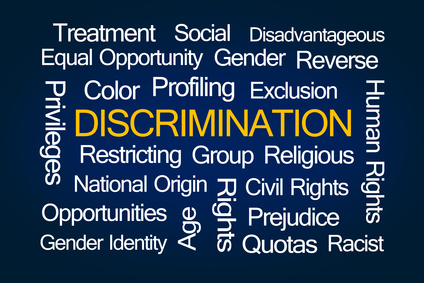You know it’s illegal to be discriminated against because of your race – but what does that mean in practice?

In law, ‘race’ covers nationality, skin colour and ethnic or national origin. The Equality Act 2010 protects you against discrimination regarding:
- Recruitment
- Pay
- Terms and conditions of employment
- Promotion
- Discipline and grievance
- Bullying and harassment
- Dismissal
There are four types of discrimination:
Direct discrimination
It’s racial discrimination if you are treated less favourably because of your actual race, perceived race, or the race of someone you associate with.
It’s not discrimination if the employer specifies that you must speak English for a genuine business reason (in Wales, employers can specify that employees also speak Welsh).
Example: Being turned down for a job even though you are the best applicant, when the employer thinks you would not ‘fit in’ with the rest of the team because you were raised outside the UK.
Indirect discrimination
It’s racial discrimination if there is a policy, practice, procedure or rule that applies to all workers, but particularly disadvantages people of a particular race.
It’s not discrimination if your employer can justify the policy, practice, procedure or rule as ‘a proportionate means of achieving a legitimate aim’.
Example: Being turned down for a job just because you do not hold the required GCSEs, when the employer doesn’t accept equivalent qualifications, but you were educated in a country that doesn’t have GCSEs or obtained O’ Level’s before they became GCSE’s.
Harassment
Your employer should provide all staff with training about how to handle cultural differences, what behaviour is acceptable and unacceptable, and how to behave respectfully towards people from different backgrounds with different customs and values.
It’s racial discrimination if your boss or colleagues behave in a way that you find intimidating, hostile, degrading, humiliating or offensive for race-related reasons.
Example: Your colleagues use derogatory or offensive terms that refer to your race or religion, even if they claim it’s just banter or a joke.
Victimisation
It’s racial discrimination if you are treated unfairly because you made or supported a complaint about race discrimination.
Are you entitled to work in the UK?
Wherever you come from, your potential employer should check that you are entitled to work in the UK, and that your paperwork is up to date.
You are automatically entitled to work in the UK if you are a citizen of:
- Britain
- Channel Islands
- Isle of Man
- Republic of Ireland
- EU countries
- Switzerland
- Iceland
- Lichtenstein
- Norway
Being discriminated against?
First, try to sort the matter out with your employer. If that doesn’t work, you may be able to make a claim to an employment tribunal.
Of course, we can help with that.
Need help?
For a free initial review of your claim, call 0808 168 7288 or Make An Online Enquiry>.
We have already helped thousands of people to win millions of pounds in compensation.
You have a choice of ways to pay, including ‘no win, no fee’.
We will also discuss the best methods of funding your case and seek to reach a solution that best suits your needs. This can involve a “no-win, no-fee” agreement if appropriate.
